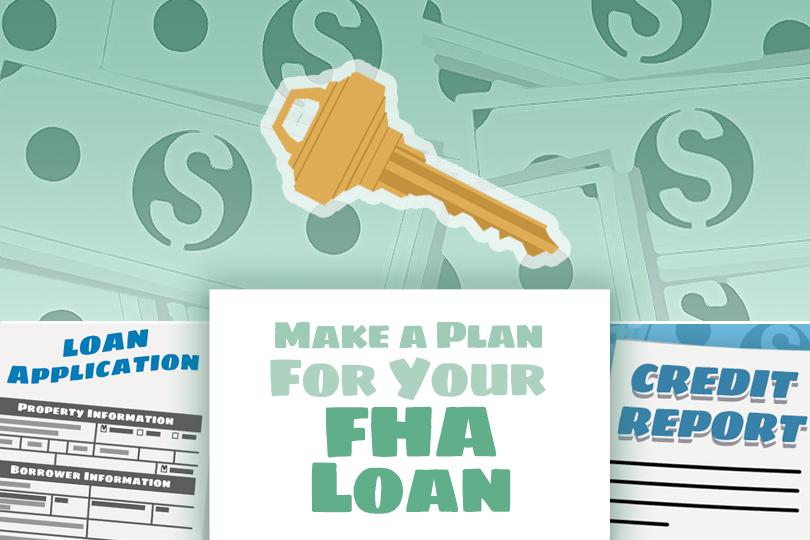Which Insurance Do You Need When Buying A Home?
February 18, 2025
Key Differences
Homeowner's Insurance: Protects against property damage, liability, and loss of use. For the borrower.
- Required by most lenders regardless of loan type.
- Premiums are paid annually.
- Renewable annually.
- Required for FHA loans with low down payments.
- Premiums are paid upfront and annually.
- May be cancellable after a certain period, depending on loan terms.
Homeowner's insurance is a policy that protects physical property and provides liability coverage. It is for the borrower, protecting your investment.
A standard homeowner's insurance policy typically covers the following:
- Dwelling: This covers the physical structure of your home and may include attached structures like a garage or deck. If your home is damaged or destroyed by a covered peril, the insurance will help cover the costs of rebuilding or repairing it.
- Personal Property: This covers your belongings inside the home, such as furniture, appliances, clothing, and electronics. Coverage extends to damage or loss from covered perils, even if the items are outside the home. Some policies may offer replacement cost coverage, which pays the current cost of replacing the item, while others offer actual cash value, which factors in depreciation.
- Other Structures: This is for detached structures on your property, such as sheds, fences, detached garages, etc..
- Loss of Use: If your home becomes uninhabitable because of a problem covered in your policy, this coverage may help with additional living expenses, including temporary housing, meals, and other related costs, while your home is being repaired or rebuilt.
- Liability Protection: This covers you if you're held responsible for someone's injury or property damage on your property. For example, if someone slips and falls on your icy sidewalk, this coverage can help pay for medical bills and legal expenses.
- Medical Payments: This covers medical expenses for guests injured on your property, regardless of who is at fault. It's often referred to as "guest medical" coverage.
While comprehensive, homeowner's insurance policies typically exclude certain events and damages, including:
- Earthquakes and Floods: These natural disasters usually require separate insurance policies or clauses.
- Wear and Tear: Gradual deterioration of your property due to age or neglect is not covered.
- Pest Infestations: Damage caused by termites, rodents, or other pests is generally not covered.
- Intentional Acts: Damage caused intentionally by the homeowner is excluded.
When applying for an FHA loan, you must demonstrate proof of adequate homeowner's insurance. Lenders typically require coverage that meets or exceeds the loan amount.
Mortgage insurance is a type of insurance that protects the lender. It is not meant to protect the FHA borrower. Lenders use this insurance to protect them in case of loan default. Typical FHA loan transactions will require mortgage insurance.
Homeowner's insurance protects you, but FHA mortgage insurance mitigates the lender's risk associated with lending to borrowers with lower equity in the property.
Types of Mortgage Insurance for FHA Loans
FHA loans have two mortgage insurance premiums (MIP):
- Upfront Mortgage Insurance Premium (UFMIP): This is a one-time premium paid at closing or rolled into the loan amount. The amount is typically a percentage of the base loan amount.
- Annual Mortgage Insurance Premium (AMIP): This is an annual premium paid in monthly installments as part of your mortgage payment. The amount is calculated based on the loan amount, loan term, and loan-to-value (LTV) ratio.
When applying for an FHA loan, work closely with your lender to understand the specific requirements for both mortgage insurance and homeowner's insurance. Ask about the different types of mortgage insurance premiums, the duration of coverage, and the process for cancellation, if applicable.

FHA Loan Articles
February 12, 2025Choosing between FHA and conventional home loans can be daunting for some first-time home buyers. What are the concerns between these two programs, and what does each one offer the borrower? We examine some of the key issues in our question-and-answer session about FHA mortgages versus conventional loans.
February 11, 2025Established in 1934 as part of the National Housing Act, the FHA's primary mission is to stimulate the housing market by providing mortgage insurance to lenders. This insurance reduces the risk associated with lending to borrowers who may otherwise be considered higher risk, encouraging lenders to offer more favorable terms, such as lower down payments and more flexible credit requirements. A key element of the FHA program is its commitment to fair housing, which is deeply rooted in the Fair Housing Act.
February 10, 2025How much do you really know about the home buying process? One major factor in protecting your new investment is knowing how the title search process works and why you need to have one done. This quiz will assess your comprehension of what a title search entails, why it's so important when using an FHA loan, and how it protects you as a buyer. From identifying potential liens to guaranteeing clear ownership, a title search plays a critical role.
January 30, 2025FHA residential refinance loans, insured by the Federal Housing Administration, allow homeowners to refinance their existing mortgages. They potentially have more flexible qualification requirements than conventional loans. FHA refi loans can lower monthly payments, shorten the loan term, consolidate debt, or even access cash for home improvements or other needs. Understanding the eligibility criteria and different refinance options is crucial for homeowners considering this option.
January 29, 2025Are you about to graduate from college and are already thinking of what your dream home might look like? Understanding the intricacies of the mortgage is an essential step in your journey toward home ownership. Two key terms you'll encounter early on are "FICO score" and "credit history." How do these two things affect your ability to buy a home?







